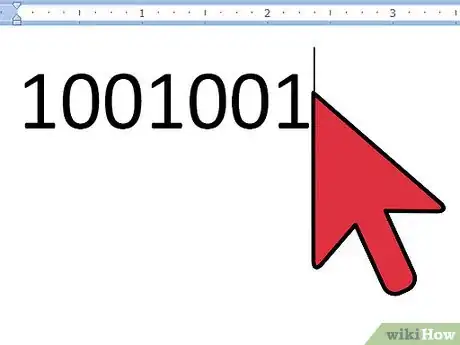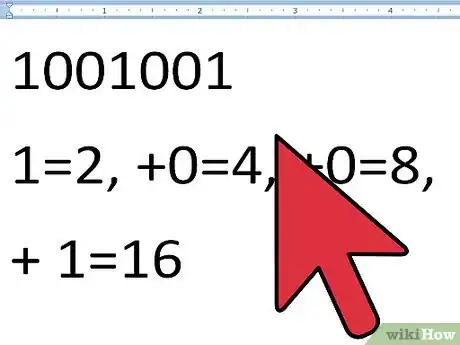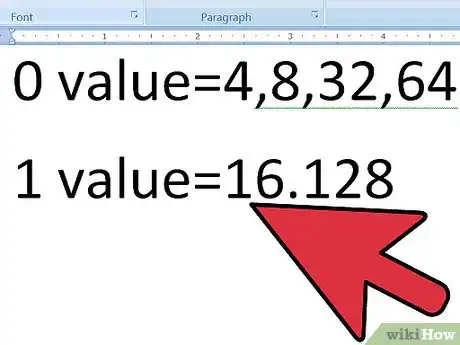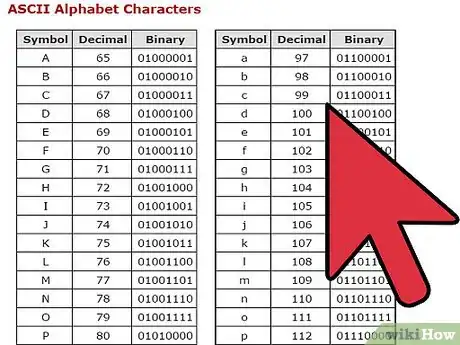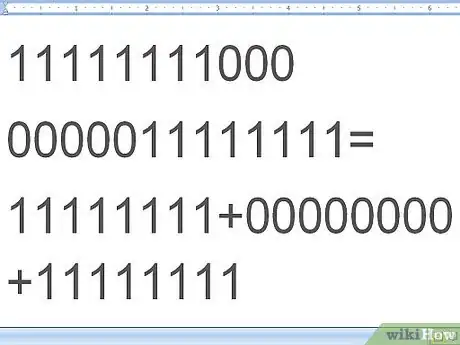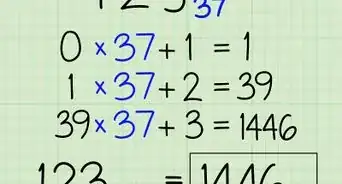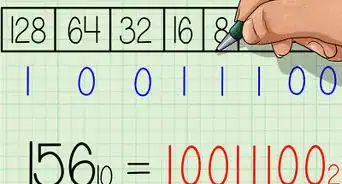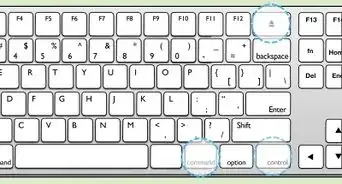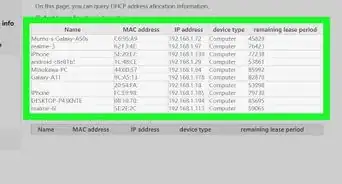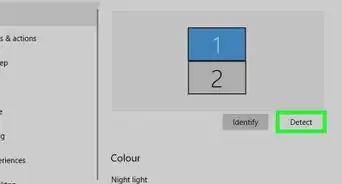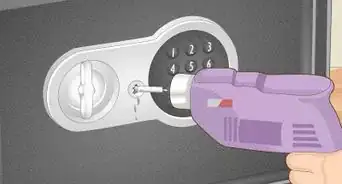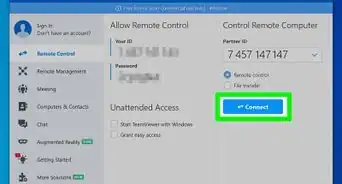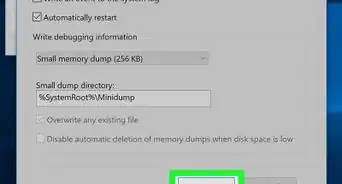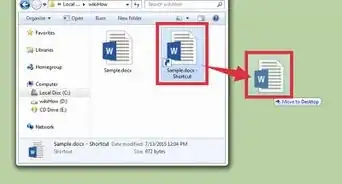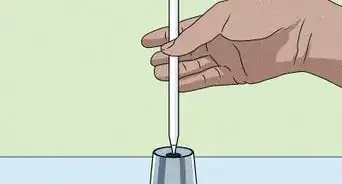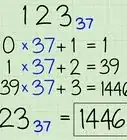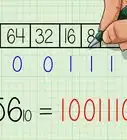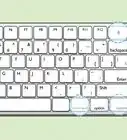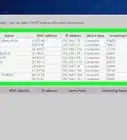X
wikiHow is a “wiki,” similar to Wikipedia, which means that many of our articles are co-written by multiple authors. To create this article, 12 people, some anonymous, worked to edit and improve it over time.
This article has been viewed 189,205 times.
Learn more...
Binary is the language of computers. They allow computers to do all of the complex things that they do. You might think that since binary numbers allow for such complex operations that they would be equally complex to decode, but thankfully this is not the case. This wikiHow will show you how to decode binary numbers into alphabetical or numerical characters.
Steps
-
1Remember that in binary 1 is "on: and 0 is "off."
-
2Choose the binary number that you want to decode.Advertisement
-
3Give each number a value, starting from the extreme right.
- For example, using the number 1001001, 1=1, +0=2, +0=4, +1=8, +0=16, +0=32, +1=64.
- The number becomes: 32+16+8+4+2+1.
-
4Cut off all values that are of 0 and add values of 1.
- 0 values = 2,4,16,32 --> 1 values = 1+8+64=73
-
5Change the answer from its numerical form of the character to its alphabetical form by using an alphabet-number-punctuation chart. [1]
-
6Divide each of your numbers into groups of 8, and then convert them to numerical form.
- For example, 111111110000000011111111=11111111+00000000+11111111
Advertisement
Community Q&A
-
QuestionHow can I decode a password?
 Community AnswerPasswords are not stored in binary. Rather, they are stored in hashes or encrypted keys. The decryption of private information such as a password is illegal.
Community AnswerPasswords are not stored in binary. Rather, they are stored in hashes or encrypted keys. The decryption of private information such as a password is illegal. -
QuestionHow can I start decoding as a 12-year-old?
 Community AnswerLots of practice! That's the best thing, but you could also read books, websites, or articles about decoding numbers. That will help you pick it up even quicker.
Community AnswerLots of practice! That's the best thing, but you could also read books, websites, or articles about decoding numbers. That will help you pick it up even quicker. -
QuestionHow can I decode a password?
 Community AnswerDecoding a password would be considering hacking. If you are a child you're unlikely to go to juvenile prison, but if you're an adult I wouldn't even dream of doing it.
Community AnswerDecoding a password would be considering hacking. If you are a child you're unlikely to go to juvenile prison, but if you're an adult I wouldn't even dream of doing it.
Advertisement
References
About This Article
Advertisement

